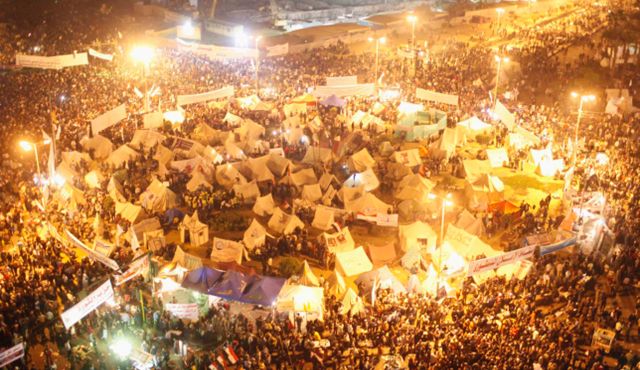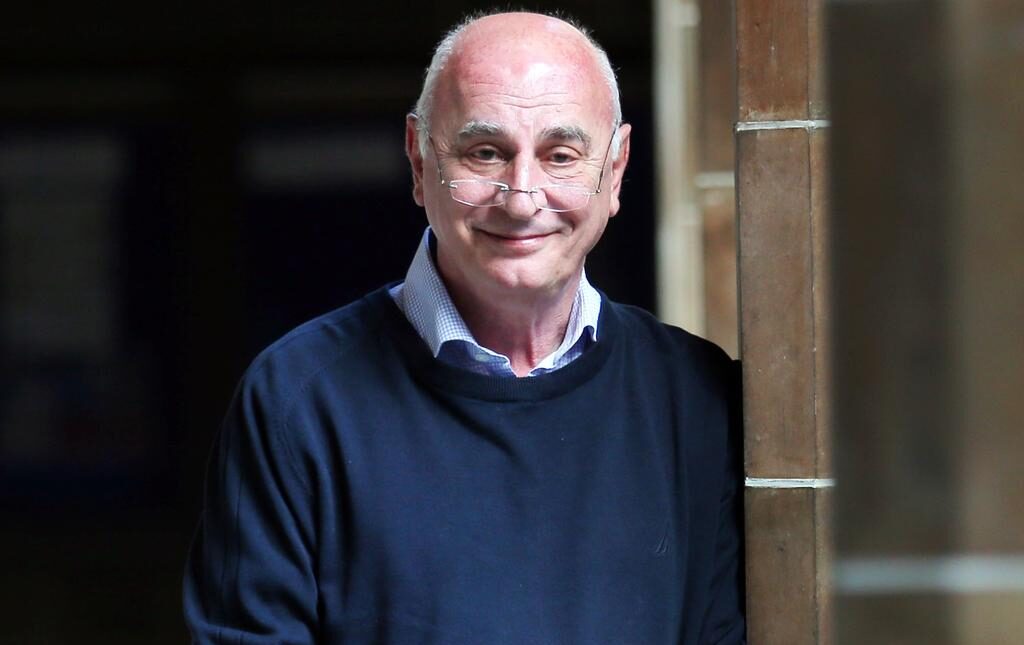UPDATES
Egyptian opposition leaders to be investigated for bizarre ‘Zionist plot’
December 7, 2012 | Sharyn Mittelman

Those who had still been hoping that an Egyptian Muslim Brotherhood government under President Mohammed Morsi would usher in democracy to Egypt have sadly had a wake up call this week. On Tuesday around 100,000 protestors gathered outside the presidential palace in Cairo to protest President Morsi’s November 22 decree that expanded his powers, placing his decisions beyond judicial oversight and enabling him to call a mid-December referendum on a draft constitution drawn up by an Islamist-dominated panel that limits freedom of expression and religion. On Thursday health authorities reported seven people had died in clashes between supporters of Morsi and secular-leaning opponents.
Facing growing public outrage, the Egyptian government appears to be trying to sideline the opposition. In the Middle East one way to sideline opposition is to accuse someone of working with the ‘Zionists’ and that is what has happened to three former Presidential candidates who were leading anti-government protests.
On December 5 Egyptian Prosecutor General Talaat Ibrahim Abdallah – who was just appointed by Morsi a few days ago – referred for investigation a complaint accusing three former presidential candidates – Mohammed ElBaradei, Hamdein Sabahy and Amr Moussa of engaging in a “Zionist plot” of espionage and sedition to overthrow the Morsi government. According the Egyptian Independent the three are accused of the following unbelievable/ridiculous plot:
“Hamed Sadeq, a lawyer who filed the report… claimed that Moussa met with former Israeli Foreign Minister Tzipi Livni and agreed with her to fabricate internal crises, and that all of the politicians named in his complaint then met at the Wafd Pary headquarters to implement the ‘Zionist plot.’ He requested that the accused be banned from travel and that the Wafd Party headquarters be confiscated for investigation.”
Earlier this week, ElBaradei, Moussa and Sabahy all declared their support and participation in the ongoing sit-in in Cairo’s Tahrir Square until Morsi’s constitutional decree is revoked. ElBaradei told a news conference that Morsi’s rule was “no different” from that of former President Hosni Mubarak, “In fact, it is perhaps even worse,” and he accused the president’s supporters of a “vicious and deliberate” attack on peaceful demonstrators.
ElBaradei looks vindicated in his point about Morsi acting “even worse” that the previous dictatorship. This kind of state investigation against leading opposition figures for “Zionist plots” looks like the sort of thing the worst dictatorships in the Middle East have often engaged in. It also could perhaps recall the Ergenekon investigation in Turkey, whereby, using very dubious and hard to credit claims, the AKP government was able to jail, silence or marginalise much of its opposition in the military and the media – as Michael Rubin discussed in an article a couple of years ago. Morever, Morsi has openly said he views Turkey’s ruling Islamist AKP party as a model for his own “revolution.”
Elliot Abrams, a Senior Fellow at the Council of Foreign Relations has commented on the bizarre accusation:
“The new Egyptian government’s decision to treat such an accusation seriously telegraphs that, as in the Mubarak regime, investigations and prosecutions will be used to intimidate and silence political critics and opponents. It also suggests that any bizarre charge, any wild accusation, will be given credence so long as it contains the word “Israel” or the word ‘Zionist.’
That this development comes in the midst of Egypt’s current crisis makes the actions of the Prosecutor General even worse, for it suggests that instead of seeking compromise the new Muslim Brotherhood rulers desire confrontation and wish to use the power of the state to crush non-Brotherhood leaders.
I’m not sure which is worse: the possibility that President Morsi is such a Brotherhood ideologue that he actually believes that Moussa and El Baradei would meet with Tzipi Livni and “fabricate internal crises,” or the possibility that he knows the charge is ludicrous but approves its utilization against critics. Either way, it is another step away from democracy for Egypt.”
Sharyn Mittelman
Tags: Egypt





